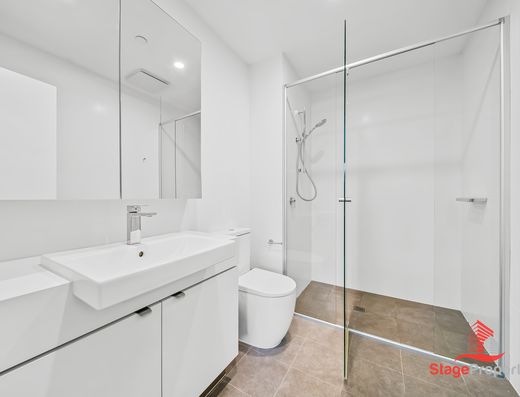What is Lenders Mortgage Insurance (LMI)?
Saving enough money to get onto the property ladder can be difficult, but Lenders Mortgage Insurance helps people achieve home ownership sooner.
Lenders Mortgage Insurance (LMI) is a fee banks and other finance lenders charge borrowers when they are deemed high risk. Usually, this is when their deposit is less than 20% of their property’s purchase price.
Made by the borrower at the time of the property settlement, the one-off payment protects the lender in the event that the borrower cannot make the repayments on their home loan.
Here’s what else you need to know about lenders mortgage insurance (LMI).
How does it work?
Technically, the borrower pays the LMI payment in a lump sum at settlement. However, many lenders will offer to finance LMI into your home loan, so that it is added to your monthly mortgage payments. This means you won’t need to have the funds upfront, but it also means you’ll need to pay more interest on your loan, which will result in higher monthly repayments.
Lenders require this type of insurance when a borrower has a small deposit – generally when it’s less than 20% of the purchase price – because the risk of the borrower defaulting on their loan is much higher than it would be if they had a larger deposit, as their monthly repayments are much higher.
Taking out the insurance allows lenders to make an insurance claim if the borrower defaults on the loan and the property sells for an amount that’s less than the value of the mortgage. The difference between the sale price and the value of the mortgage is known as the ‘shortfall’, and this is what the lender will seek to recover from the LMI provider should the borrower default on their loan.
However, even if the lender successfully recovers this shortfall, the LMI provider may still seek to recover the shortfall from the borrower. Which is why, if you want protection in the event of loss of income, injury or death, you need to take out Mortgage Protection Insurance, which is a different product.
When do I need to pay LMI?
Each financial institution will have a slightly different policy, but most will require you to pay lenders mortgage insurance if your deposit is less than 20% of the property purchase price.
How much does LMI cost?
Unfortunately, there’s no simple answer to that question, as each LMI provider calculates the cost of LMI slightly differently.
That said, you can get a good idea of how much LMI you’ll need to pay by using our mortgage calculator. And we’ve also provided a list of the main factors that affect the cost of LMI below.
1. The size of the loan
As you might expect, the more money you borrow, the larger the LMI will be. That’s because the more money the financial institution lends you, the greater loss they face in the event that you default.
2. The size of your deposit
This is another very important factor. As soon as your deposit drops below 20% of the property’s purchase price, you’ll need to pay LMI. And the lower it drops, the more LMI you’ll have to pay.
This is because you’re more likely to default on your loan when you have a very high loan-to-value ratio (LVR).
3. Whether you’re buying for investment
Some LMI providers will charge different rates if you are purchasing a property to rent out, rather than to live in.
4. Your employment status
LMI providers tend to charge higher rates for people who aren’t in a regular, full-time job, as alternative forms of employment are generally considered more vulnerable.
Can I avoid paying LMI?
Yes, there are a number of ways to avoid LMI.
1. Save more
Firstly, you can avoid paying LMI by saving for a bigger deposit. Which is to say saving an amount that’s equal to a higher percentage of the property’s purchase value. This is because most banks only charge LMI if your deposit is less than 20% of the property purchase price.
2. Ask for help
Pride before a fall, right? Saving for deposit is tough, so if your parents are in the position to offer financial support, you shouldn’t feel ashamed to ask for their help. They’d likely be more than happy to help, and you can work out a plan to pay them back over time.
3. Get a guarantor
This is another way of tapping into the Bank of Mum and Dad’s reserves.
Guarantors take on some of the risk of the loan by putting forward some of the equity in their property as security. By putting forward that equity, the guarantor reduces your LVR to less than 80%, eliminating the need for LMI.
4. Consider disclosing your occupation
Generally, LMI providers are willing to lend more money to doctors, dentists and lawyers than they are to people working in high-risk industries, as these professions are consistently in high demand and are also well paid.
Consequently, people working in these well-regarded professions are generally seen as low-risk borrowers. So, if you are a doctor, dentist or a lawyer, let your lender know, and ask them to waive your LMI premiums – some might be happy to do so.
Is it better to pay LMI or save more?
There’s no right or wrong answer here, as every person’s situation is unique. Ultimately, though, you need to assess both your own financial circumstances and the performance of the market before working out which path is right for you.
Delaying your purchase so that you can save for a bigger deposit will mean you won’t need to pay LMI. But it could also mean you run the risk of having to pay more money for your home, as property prices may rise during the time it takes for you to save a large enough deposit.
On the other hand, taking out a loan with a higher loan-to-value ratio will help you get onto the property ladder far sooner, but it will also most likely mean paying more money in interest over the course of your mortgage.
Which is why you needing to take into account how the market is tracking to work out which strategy is best for you.
If property prices are stalling or falling, then it makes more sense to delay your purchase and save for a bigger deposit.
But if the market is strong, prices could rise during the time it takes to save a bigger deposit, and so paying LMI and buying a home at today’s prices would likely be cheaper than the extra dollars needed to secure a property in a year’s time.
Source: REA








